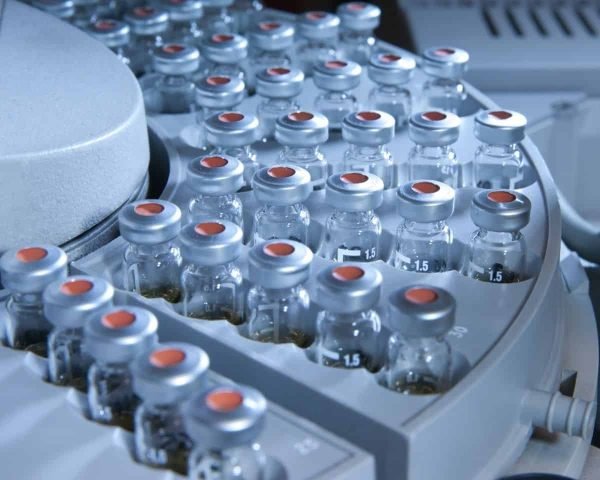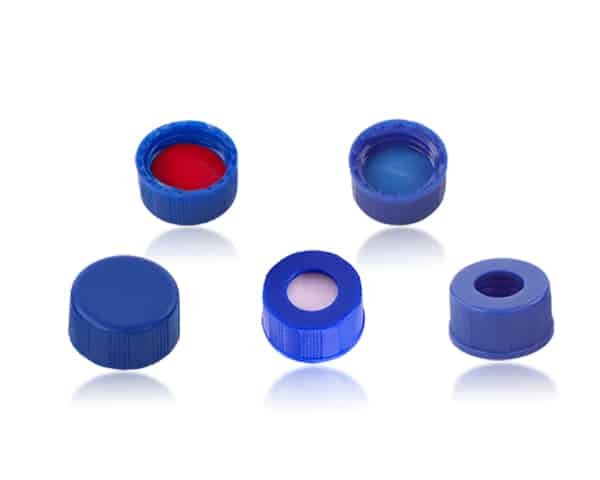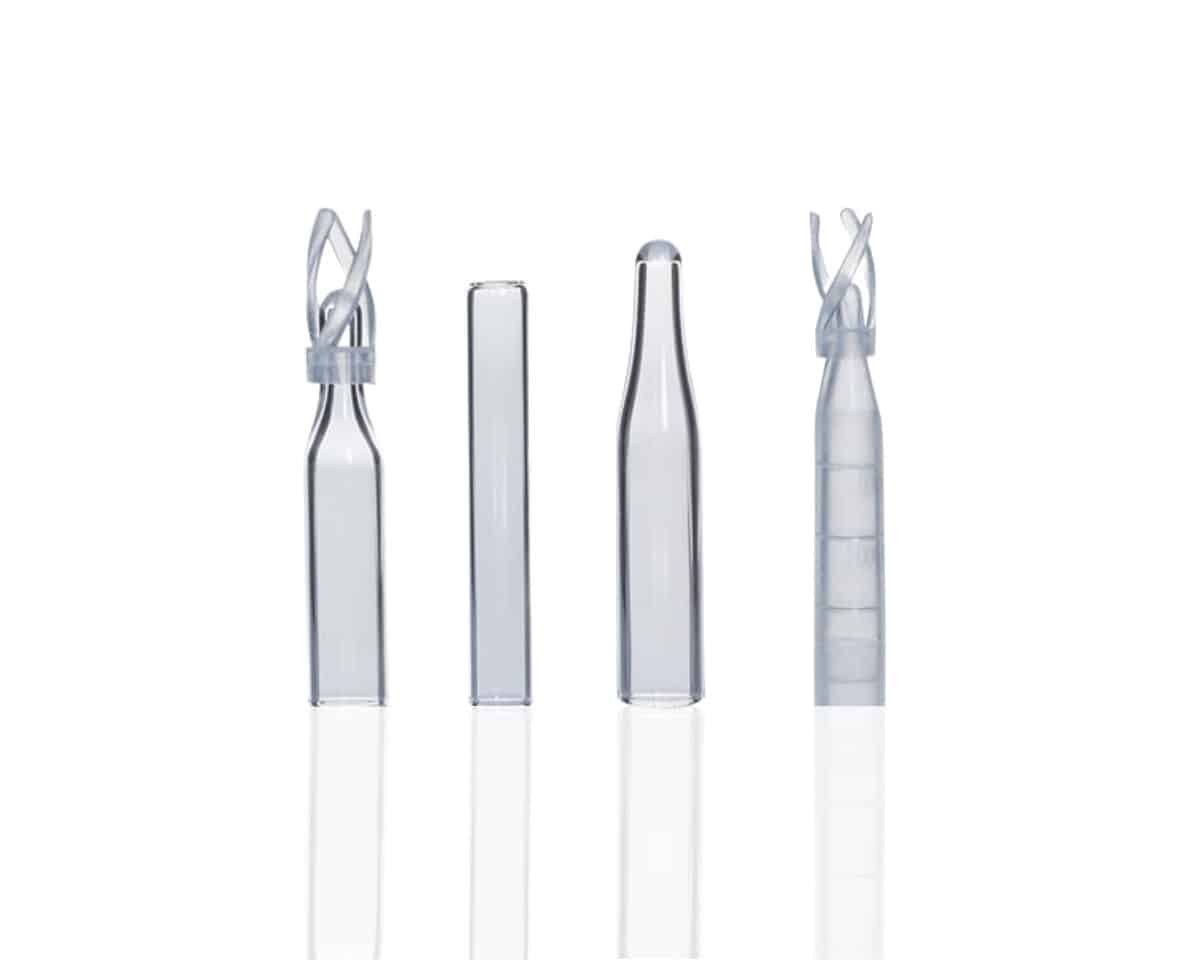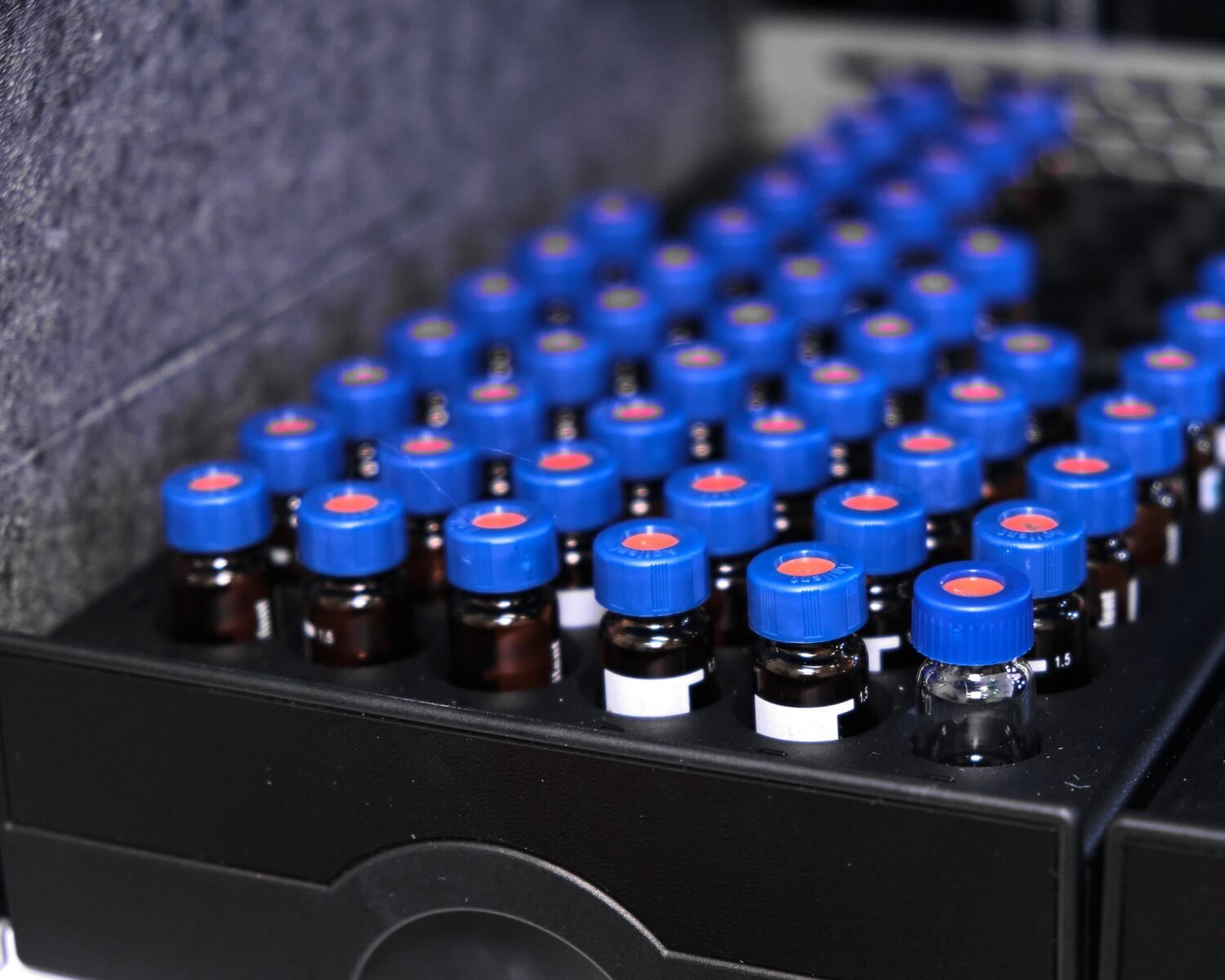There are countless ways for something to go wrong in a laboratory, whether due to ignorance, negligence, or pure bad luck.
Science itself theorizes that if something can go wrong, then there is a chance that it will go wrong.
While Murphy’s law has already become an adage, nothing stops us from improving our practices.
Mistakes should not hinder anyone from working towards completing their laboratory experiments that can contribute to science.
I have compiled a few common mistakes that young and experienced students alike can make in a science lab.
These are not unique to HPLC labs and can be one of your next mistakes if you do not finish reading this article.
If these happened in a chemistry lab, there’s a high chance these could also happen in an HPLC lab.
Let’s see the fair share of some scientists who are brave enough to share their experiences so others can avoid the same fate.
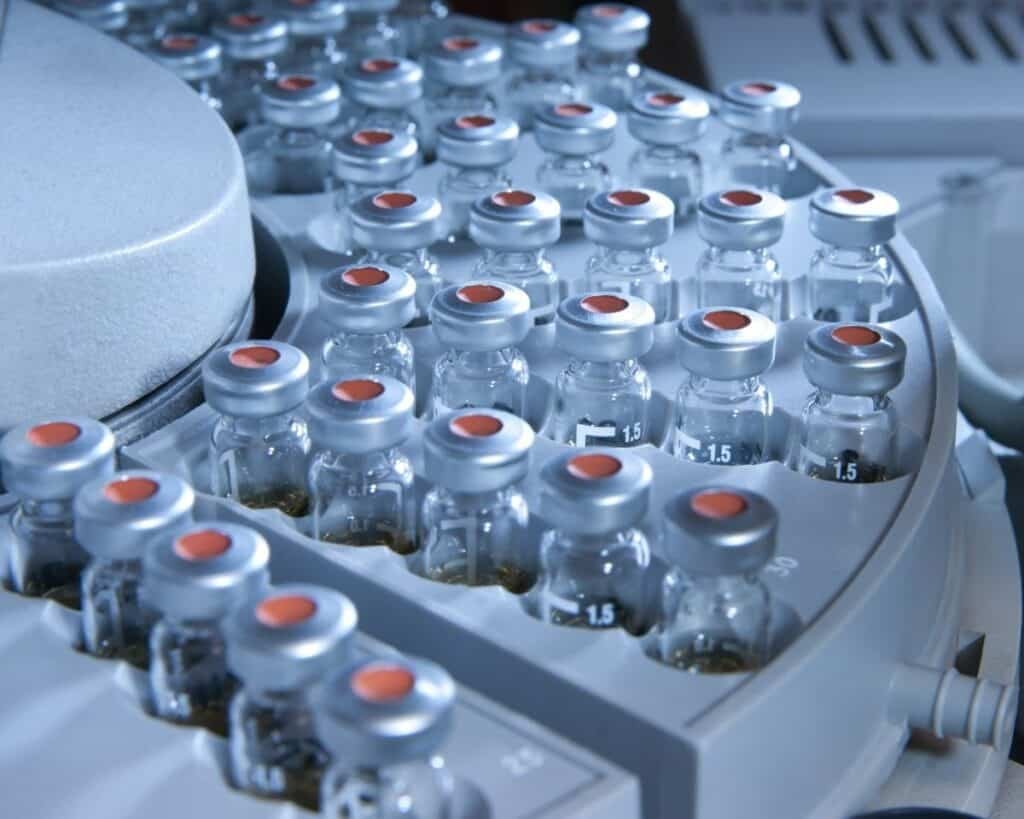
Not checking the label on bottles
Checking the label is applicable not only in checking the label in our food but also for the things that we cannot eat and drink inside the laboratory.
There are existing regulations that mandate the proper labeling of products, be it for food or reagents.
We label the food in the fridge when we do not want to share it with our housemates. There are instances too when something is not for human consumption, such as pet food.
Similarly, it is our responsibility to ensure we are using the correct substance or concentration when preparing for our experiments.
Our lab technicians would not always be around to assist us.
One user shared their experience of not being able to closely read the label:

Of course, it is also our responsibility to make sure that we put the correct labels in bottles as a courtesy to the next user:

Dumping the chemicals in the sink
Did you remember the time when Jimmy Neutron’s dad disposed of all of Jimmy’s lab waste to the lake?
When flushing them down the sink, Diluting chemicals does not discount the fact that they will end up somewhere later on. They can also contribute to a biological magnification that can affect living organisms in an ecosystem. Moreover, they can end up on our plates.
Thankfully, Jimmy’s brain blast saved the day, and their only concern is a gigantic pet turtle.
If you want to guess what type of chemicals were there, you can watch the boy genius here.
There’s something similar that anyone could have done in the lab at least once: “diluting” the chemical so that it is “safe” to go down the drain.
Well, good for you, you saved your effort. Still, it is not following ideal lab policies requiring waste disposal containers.
Of course, there are proper ways to store waste chemicals, and this situation is not an excuse to do otherwise:
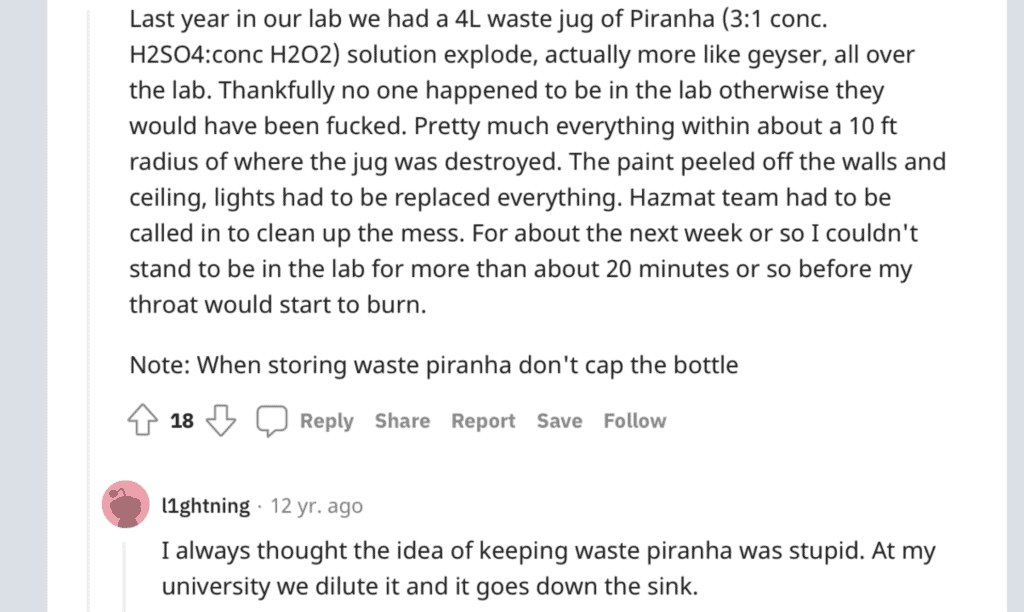
Proper waste disposal extends to our households and everywhere to go, at least when our community has an ordinance for it, or you are living in a first-world country.
Greenpeace has cautioned on chemical contamination due to improper waste disposal. Contaminants can be present on both land and water. Regardless of the source, waste chemicals comprise a different class of waste that should be disposed of properly, and here is a simple guide.
Chemicals can even reach the water we drink. Scientific American has shared an article about the contamination of water sources in the United States.
Not using common sense
Just because something looks good doesn’t mean it’s going fine or will continue to be alright.
Accidents can happen all the time, which can be avoided even when you’re not an expert. Try to read some lab manual first or ask your superior.
My tip is to keep in mind that lab wares and equipment are really, really, expensive and don’t be like these guys:
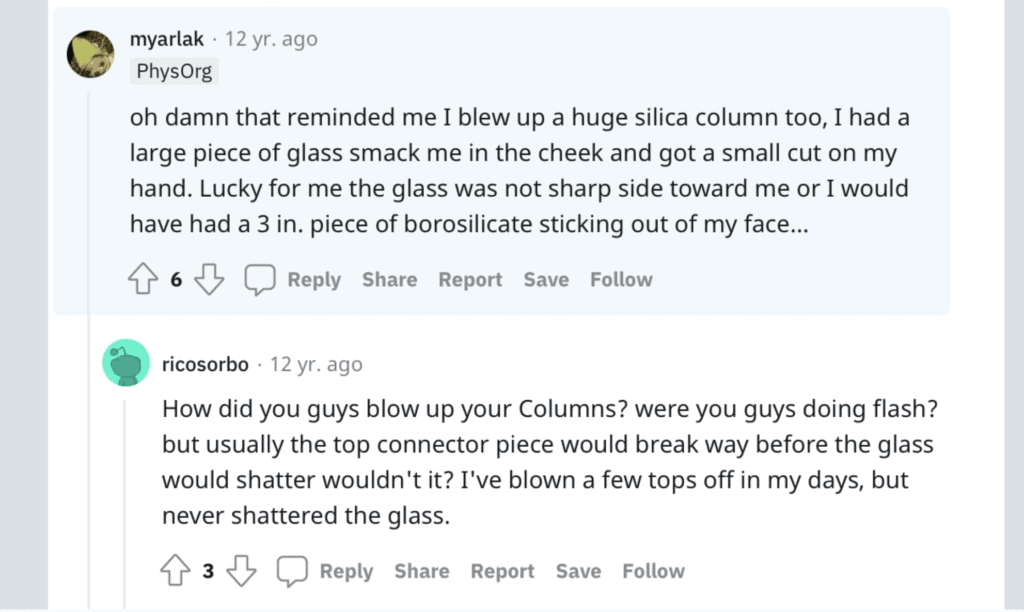
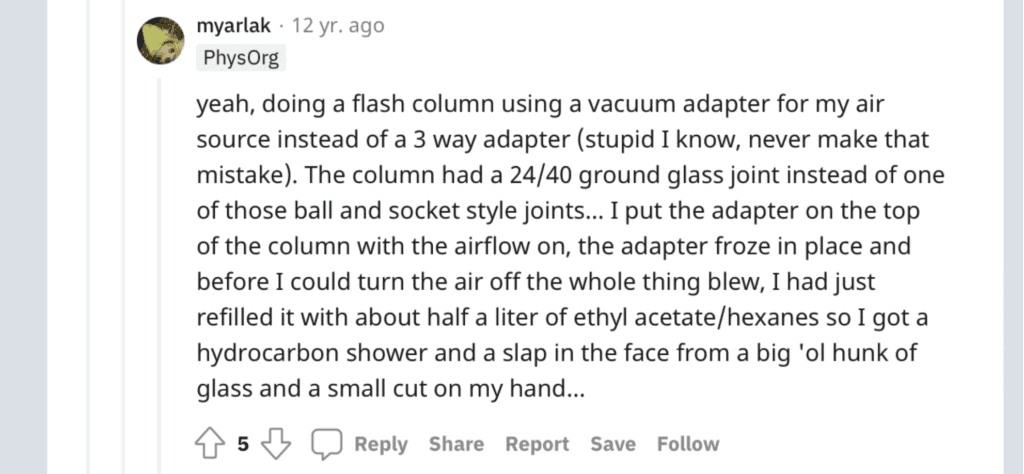
Well, you may argue that not all accidents concern expensive materials, but you can fear for your life:
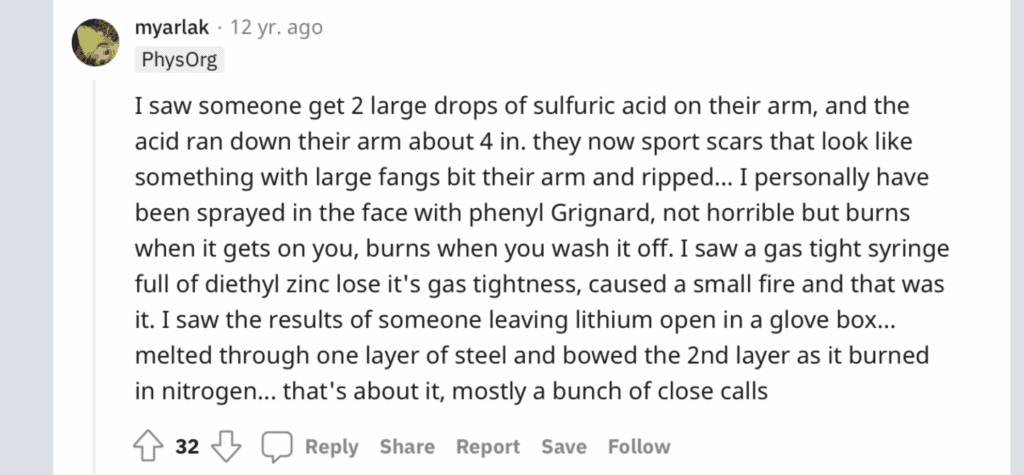
Always report to your lab manager, no matter how small, or expensive the damages are. Even if it means you’re getting a slap on the wrist or some serious discussion.
Not all students are lucky like this guy:
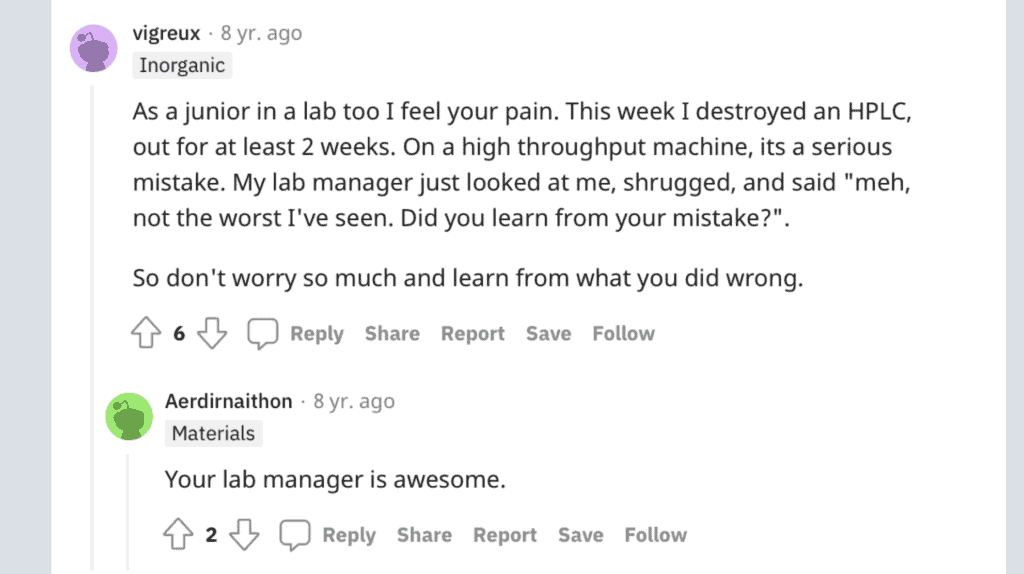
The stupidity doesn’t end there, as I have seen very dramatic experiences that may as well end up in a soap opera:
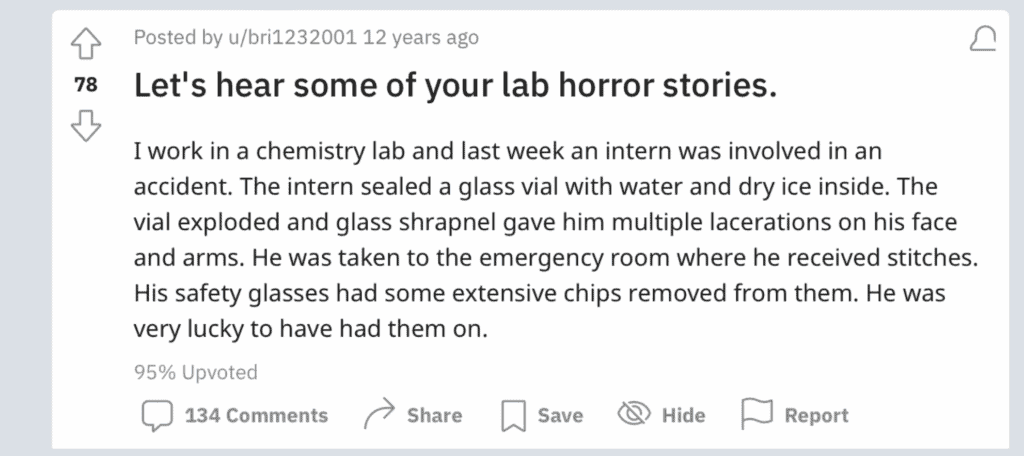
At least he remembered to wear his safety glasses and lived on to tell the tale.
Some things can straight-up make you cringe or scream in disappointment:
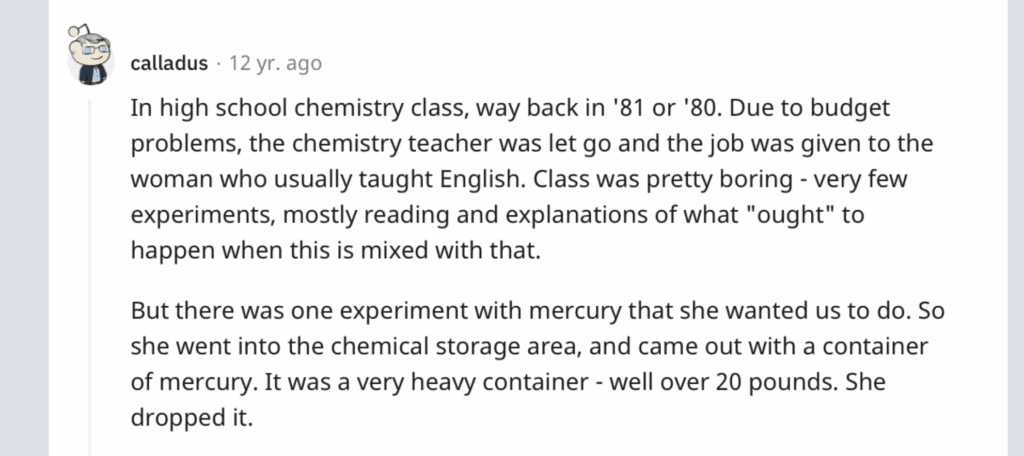
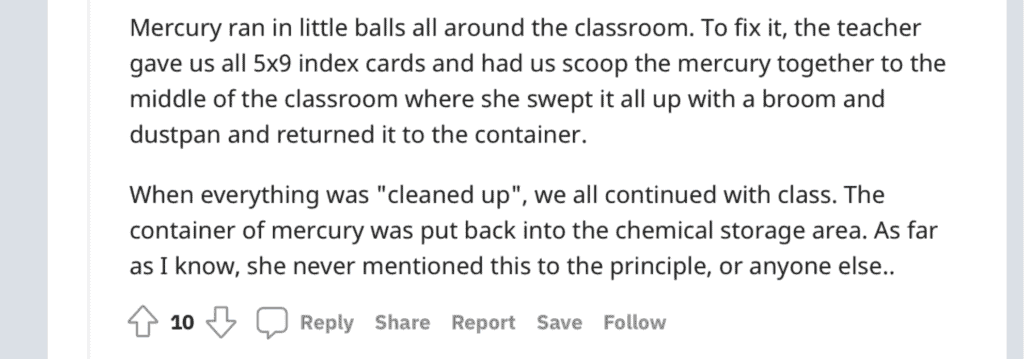
Yes, you can “pick up” and safely handle the mercury in its liquid form but don’t forget that it evaporates quickly. The mercury vapor is toxic, and this heavy metal will stay with you for a long time.
Its freezing point is a little more above three degrees Celsius, and it is evaporating when in liquid form.
Don’t even think to argue that it is “not that harmful,” but instead stick to safety guidelines or protocols when handling spills in the lab.
Moving on, and since we’re talking about protocols:
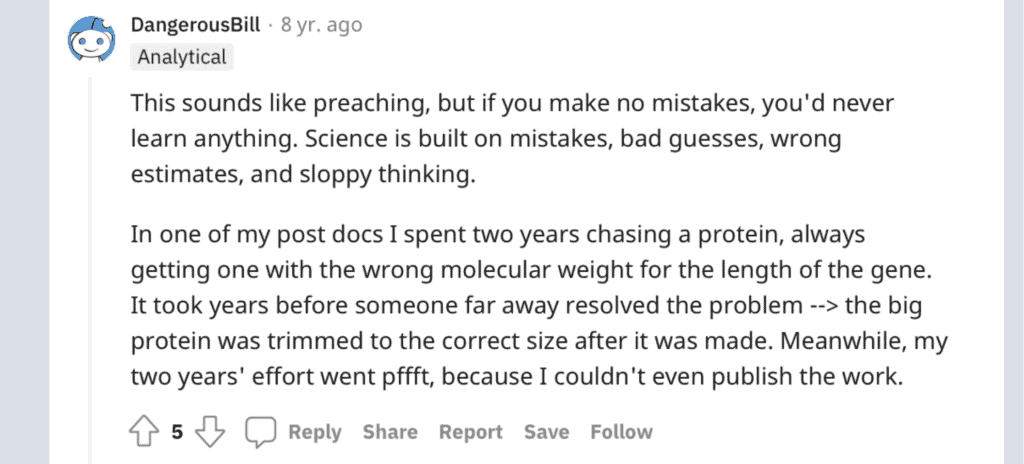
Changing your protocol in the middle of the experiment can invalidate your whole work for publication.
Before starting an experiment, don’t forget to perform calibrations and run a blank to check for carryover and ghost peaks.
The same is with measurements; you should use the same number of significant figures throughout your experiment when using the same measurement device. This applies whether you’re a biologist, physicist, chemist, or in another field of science.
Nature has enumerated some common mistakes of young scientists. An example is not being able to check and include the standard error for measurements. Failing to mention statistical assumptions used is another. Not having a vetted protocol that is written and specific can cause problems too in the long run.
Forgetting about fire hazards and protocol
There is nothing scarier than fire that gets even bigger as you try to extinguish it.
It would be best if you always thought of what can go wrong in an experiment to prepare for it, taking note of incompatible chemicals.
Popular culture provides plenty of examples where random things can exacerbate fire while attempting to extinguish it. Skyscraper (2018) has shown how water and anti-fire measures can burn a building.
These postdocs almost got it right except for adding one more thing in the system:
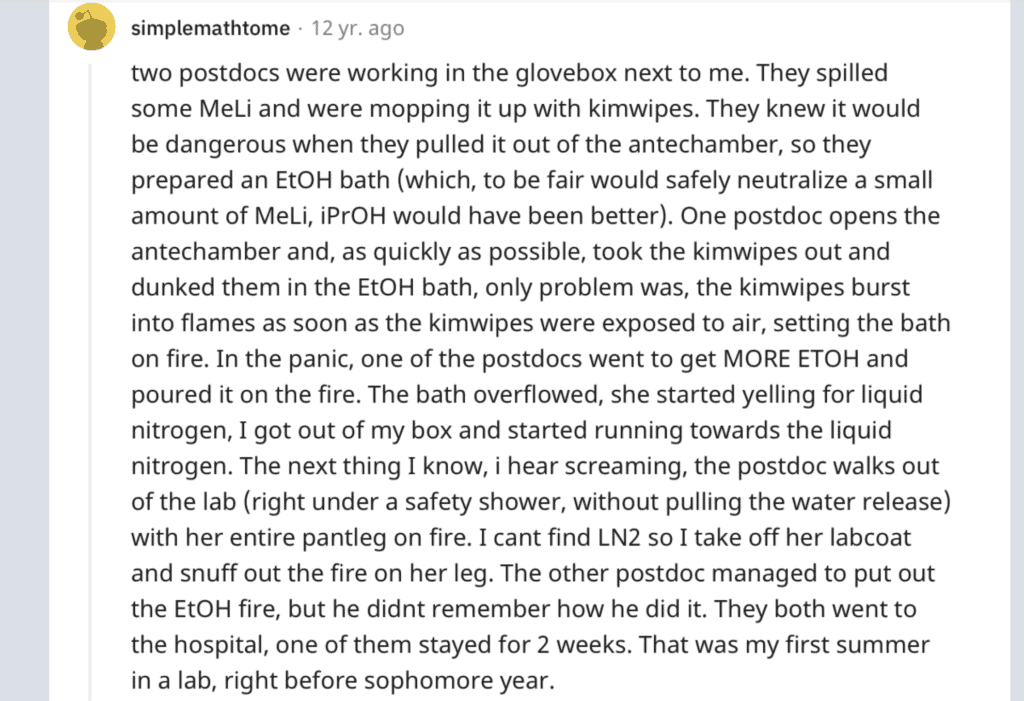
Not all fires can be put out with the same type of fire extinguisher:

No matter how careful we are with our experiments, there can always be some slip-ups. Just imagine bright scientists ruining experiments just because of a small mistake.
In Stowaway (2021), starring Anna Kendrick, the worse has happened because of a failure to do a crew check before takeoff. Their trip to Mars went short of their expectations, and you can see for yourself here.
Yes, scientific advancement is important, but you should also avoid trips to the hospital as much as possible.
Forgetting about laws of Physics
Last but not least, remember that the laws of physics still apply in a chemistry lab.
Thermodynamics applies to both Physics and Chemistry, even though they may have slightly different expressions in terms of equations.
Just to remind everyone, here are the three laws again:
The first law of thermodynamics, or the law of conservation of energy, states that energy can neither be created nor destroyed.
The second law of thermodynamics states that total entropy cannot decrease in an isolated system, which concerns spontaneous processes.
The third law of thermodynamics states that the closer the temperature is to absolute zero, entropy gets more constant.
As far as I can remember, states of matter are being taught in grade school, and everyone knows that gas can expand.
This person just got lucky:

At least this other guy still had his brain cells intact to conduct HPLC:

Since he mentioned centrifugation, ensure balance by distributing the load inside instead of piling everything on one side.
The list of blunders does not end here, but if you have something to add, share this article on social media and tag your friend working in the laboratory.
Conclusion
At the end of the day, mistakes are part of the learning process. Just don’t overdo it in the lab.
We at Mastelf can offer you various types of vials that you can use for safely handling your samples, whether in the lab or when transporting them.
Send us a message today and get a free sample.

